For mold repair, achieving precision and efficiency is crucial, and the right welding machine can make all the difference. In this article, we’ll explore the top 10 welding machines for mold repair in the U.S., highlighting the features and innovations that set them apart. Whether you’re an industry veteran or just starting, these machines will help you achieve flawless results. Let’s dive in!
MaxWave Laser
MaxWave Laser specializes in precision mold welding machine, using advanced fiber laser technology for high accuracy, minimal heat impact, and industrial durability.
Famous Models
- MW-QCW200: This is a QCW welding machine for mold repair that can rotate 540° for welding. It is very suitable for fine repair of precision molds, minimizing deformation while ensuring high-strength welds.
- MW-AR200: This welding machine is ideal for mold repair, offering automatic, efficient, and accurate batch welding with programmable computer controls
Market Share
MaxWave Laser continues to expand its presence in the global die repair industry, especially in Asia and Europe where demand for high-precision welding is high.
Customer Feedback
Users value the MaxWave mold welding machine for accuracy, ease of operation, and ability to restore molds with minimal post-processing. It was noted that proper operator training is necessary to maximize performance.
Pros and Cons
- Pros: High precision, minimal heat-affected zone, low long-term mold maintenance costs.
- Cons: Requires skilled operation for best results, higher-powered models may require stable environmental conditions.
Sunstone Welders
Sunstone Welders specializes in pulse arc micro-welders, delivering strong, precise welds with minimal heat distortion for tooling, medical devices, and electronics.
Famous Models
- Orion 200i: A versatile pulse arc welding machine for mold repair with adjustable energy settings, ideal for fine mold repairs and small-scale industrial welding.
- Orion 300ci: A CNC-compatible model for automated precision welding, suitable for high-volume production environments.
Market Share
Sunstone Welders has a strong presence in North America and Europe, particularly in industries requiring micro-welding solutions, such as aerospace, medical device manufacturing, and jewelry production.
Customer Feedback
Users praise Sunstone welders for their reliability, ease of use, and ability to weld thin materials without warping. Some note that while the machines are intuitive, optimal results require proper training in pulse arc welding techniques.
Pros and Cons
- Pros:Sunstone Welding machine offer precision micro-welding with clean, distortion-free joins, ideal for delicate mold repairs and jewelry, while their intuitive controls simplify operation.
- Cons:These welders have limited material thickness capacity unsuitable for heavy industrial use, require meticulous surface preparation, and carry a premium price point compared to conventional welding systems.
I recommend Sunstone Welders for their practical, exact, and cost-saving solutions. They help mold repair pros keep their molds working longer with less downtime.
Gesswein (Sisma)
Gesswein, in partnership with Sisma, offers precision welding machines with high repeatability, minimal heat input, and superior quality for delicate repairs and high-value manufacturing.
Famous Models
- Sisma MySonic 50: The 50W fiber laser welding machine offers precision jewelry welding with advanced pulse shaping and a touchscreen interface for easy, flawless metal joining.
- Sisma Microwelder Series: This compact 20-30W precision laser welder enables micro-scale joining for delicate applications in watchmaking, dental implants, and micro-electronics, where minimal heat input is essential.
Market Share
Gesswein (Sisma) leads in luxury jewelry and micro-welding, serving North American jewelers, European watchmakers, Italian goldsmiths, and high-end electronics manufacturers in Asia.
Customer Feedback
Praised for its precision in gold welding, minimal post-polishing for mold repairs, and reliable performance, this laser system is favored by professionals. However, its higher price, need for operator training, and best performance on clean surfaces are key considerations.
Pros and Cons
- Pros: The system delivers micrometer-level precision with minimal heat distortion, offers a wide range of power options (from 20W to 1000W+), and is backed by strong after-sales support and training.
- Cons: It comes with premium pricing, is not suited for heavy industrial welding, and requires skilled operation to achieve optimal results.
LaserStar Technologies
LaserStar Technologies offers fiber laser welding and marking systems with high precision, minimal heat impact, and deep penetration for advanced manufacturing and tool repair.
Famous Models
- FiberStar 200W: A versatile laser welding machine for mold repair, jewelry, and medical device welding, featuring pulse & CW modes for flexible applications.
- AutoStar 300W: An automated laser welding workstation with CNC integration, optimized for high-volume precision welding.
Market Share
LaserStar is a key player in North America and Europe, serving medical, aerospace, and mold repair industries with high-precision machines for R&D, production, and tooling.
Customer Feedback
Customers praise its exceptional beam quality, durable build for industrial use, and user-friendly software. However, higher-power models require proper cooling for optimal performance.
Pros and Cons
- Pros:Delivers ultra-precise 0.1mm welds with minimal heat distortion, supports automation, and ensures reliable 24/7 production.
- Cons: Higher upfront cost, requires skilled operators, and is best suited for thin-to-medium materials rather than heavy industrial welding.
LaserStar Technologies is a trusted brand for high-precision, automated laser welding, widely used in medical, aerospace, and precision mold repair industries.
IPG Photonics
IPG Photonics specializes in advanced fiber laser systems, known for energy efficiency and superior beam quality, ideal for mold repair, cladding, and deep-penetration welding.
Famous Models
- YLPN-500/5000: High-power pulsed laser welding machine for mold repair optimized for precision mold & die repair, minimizing heat input while ensuring deep weld penetration.
- YLX Series: Compact fiber lasers for micro-welding and fine repairs, used in electronics, medical devices, and tooling maintenance.
Market Share
IPG dominates the high-power fiber laser market, with a strong presence in North America, Europe, and Asia. Their technology is widely adopted in automotive, aerospace, and heavy machinery industries, where precision and power are critical.
Customer Feedback
Users highlight IPG lasers for their stability, low maintenance, and energy efficiency. Some note that while the machines are highly capable, they require proper cooling systems and skilled operators for optimal performance.
Pros and Cons
- Pros: Exceptional beam quality and power efficiency, minimal heat distortion for critical repairs, long lifespan with low operating costs, and a wide range of models for various industrial applications.
- Cons: Higher initial cost than traditional welders, requires skilled technicians for setup and maintenance, and robust cooling and power infrastructure needed for high-power models.
IPG Photonics is a top choice for industrial laser welding, offering high precision and reliability for mold repair and large-scale manufacturing. Despite a high upfront cost, their lasers provide long-term savings and superior performance.
Rocklin
Rocklin Manufacturing offers advanced laser welding and cladding systems for mold repair and die maintenance, using fiber laser technology to deliver high-speed, low-distortion welds that extend tool life and minimize downtime.
Famous Models
- RM-300L Laser Welder: A high-power (300W) fiber laser welding machine for mold repair optimized for deep repairs on large molds and dies, featuring adjustable pulse settings for versatile applications.
- RM-150C Cladding System: A hybrid laser-cladding machine for surface restoration, ideal for rebuilding worn-out tooling with minimal heat input.
Market Share
Rocklin Manufacturing holds a strong position in North America, particularly in the automotive and aerospace sectors. Their machines are also gaining traction in Asia, where demand for automated mold repair solutions is growing.
Customer Feedback
Users praise Rocklin’s machines for their durability and reliable performance in heavy-duty repairs but note the need for proper setup and maintenance for best results.
Pros and Cons
- Pros: High-power laser options allow deep mold repairs, with excellent durability for industrial environments, a low heat-affected zone to preserve tool integrity, and strong after-sales support and training.
- Cons: The system requires a higher initial investment than entry-level welders, demands skilled operators for complex repairs, and occupies a larger footprint compared to some competing models.
Made in the USA, I trust the MoldMender Micro Welder for mold repair. It gives you exact results, easy use, and helps cut costs and downtime.
Han’s Laser
Han’s Laser is a global leader in laser technology, offering fiber laser welders known for high stability, deep penetration, and minimal heat-affected zones, ideal for mold repair, automotive welding, and sheet metal fabrication.
Famous Models
- HL-WF1000: A 1000W fiber laser welding machine designed for deep-penetration welding in heavy industrial applications, such as automotive components and thick metal plates.
- HL-AM300: A 300W pulsed laser welding machine for mold repair and micro-welding, ensuring minimal thermal distortion.
Market Share
Han’s Laser leads China’s industrial laser market and is rapidly expanding in Europe and North America, competing with IPG Photonics and Trumpf.
Customer Feedback
Han’s Laser machines are valued for their durability, power, and cost-effectiveness, though proper training and maintenance are key for peak performance.
Pros and Cons
- Pros: Its high power and precision suit both heavy and fine welding, offering competitive pricing and options from handheld to automated systems.
- Cons: After-sales support varies by region, requires skilled operators, and has limited ultra-high-end models for niche applications.
From what I’ve seen, Han’s Laser stands out as a top maker of trusted and new mold repair tools with their smart tech and many uses.
Optic Laser
Optic Laser specializes in fiber and pulsed laser welding machine, offering precision solutions for automotive mold repair, medical devices, and electronics assembly with minimal thermal distortion.
Famous Models
- OL-FLW200: A 200W fiber laser welding machine for mold repair, offering micron-level precision with minimal thermal distortion.
- OL-Micro 50:: A 50W micro laser welder designed for ultra-fine welding in electronics and medical devices.
Market Share
Optic Laser dominates in Asia and is expanding in Europe and North America, with key applications in automotive tool & die maintenance, medical implant welding, and consumer electronics.
Customer Feedback
Users praise its minimal post-weld polishing, 10x speed advantage over TIG welding, and easy programming for complex tasks. However, a stable power supply and thorough operator training are recommended for optimal performance.
Pros and Cons
- Pros: Offers unmatched precision (20-50μm laser spot), a minimal heat-affected zone ideal for hardened molds, and versatility across metals, ceramics, and some plastics.
- Cons: Has a higher initial cost, is less suitable for thick materials (>5mm), and requires a clean surface for optimal weld quality.
Optic Laser is a top choice for high-end laser welding, excelling in mold restoration, micro-welding, and automation. Ideal for tooling shops, medical device makers, and advanced manufacturing.
Maven Laser
Maven Laser specializes in fiber laser welding machine for die & mold repair, precision tooling, and thin-metal fabrication, offering low heat input, deep penetration, and minimal post-processing to reduce downtime.
Famous Models
- ML-300F: A 300W fiber laser welder with auto-focus and seam tracking, ideal for complex mold repairs and high-repeatability welding.
- ML-150P: A portable 150W welding machine for on-site repairs, featuring touchscreen controls and pulse modulation for delicate applications.
Market Share
Maven Laser is growing fast in China, Southeast Asia, and Europe, favored for automotive mold maintenance and precision manufacturing, with competitive pricing and 24/7 support.
Customer Feedback
Customers praise the ML-300F for reducing mold repair time by 40% over TIG welding and its ease of use with stable beam quality. However, higher-power models require a stable power supply for optimal performance.
Pros and Cons
- Pros: Delivers high precision with a 0.1mm beam spot, features an energy-efficient fiber laser that cuts running costs by 30% compared to YAG lasers, and has a modular design for easy automation upgrades.
- Cons: Less suited for ultra-thick materials (>5mm) and requires initial training to optimize welding parameters.
I believe Maven Laser stands out for quality, tech, and global service in the mold repair field. Their strong and new solutions set high standards for exact and fast laser welding.
CTLHS Laser
CTLHS Laser specializes in fiber laser welding machines for mold repair, automotive welding, and precision manufacturing, offering high-speed, low-heat-input systems that ensure minimal deformation and strong welds.
Famous Models
- CTLHS-1000F: A 1000W fiber laser welding machine optimized for stamping die & injection mold repair, featuring auto-focus and cross-jet protection.
- CTLHS-1500A : A high-power model (1500W) for thick metal welding, ideal for automotive and aerospace components.
Market Share
CTLHS Laser has been expanding rapidly in China, Southeast Asia, and Europe, where demand for affordable yet high-performance laser welding is growing. Their competitive pricing makes them a strong alternative to premium brands.
Customer Feedback
Customers praise the high welding speed (up to 3X faster than TIG), low heat distortion for mold accuracy, and strong after-sales support, but recommend a stable power supply and operator training for optimal performance.
Pros and Cons
- Pros: Cost-effective, highly precise for fine mold and tool repairs, and energy-efficient fiber laser technology.
- Cons: Less recognized than top-tier brands and limited local service centers in some areas.
I believe CTLHS Laser systems lead the field in mold repair with their top accuracy, new technology, and wide use across industries.
Summary
Choosing the right welding machine for mold repair is key to improving efficiency and tool longevity. The systems we’ve highlighted offer precision, durability, and value, making them ideal for industries like automotive and manufacturing. Contact us and invest in the right machine today to boost productivity and achieve flawless repairs!

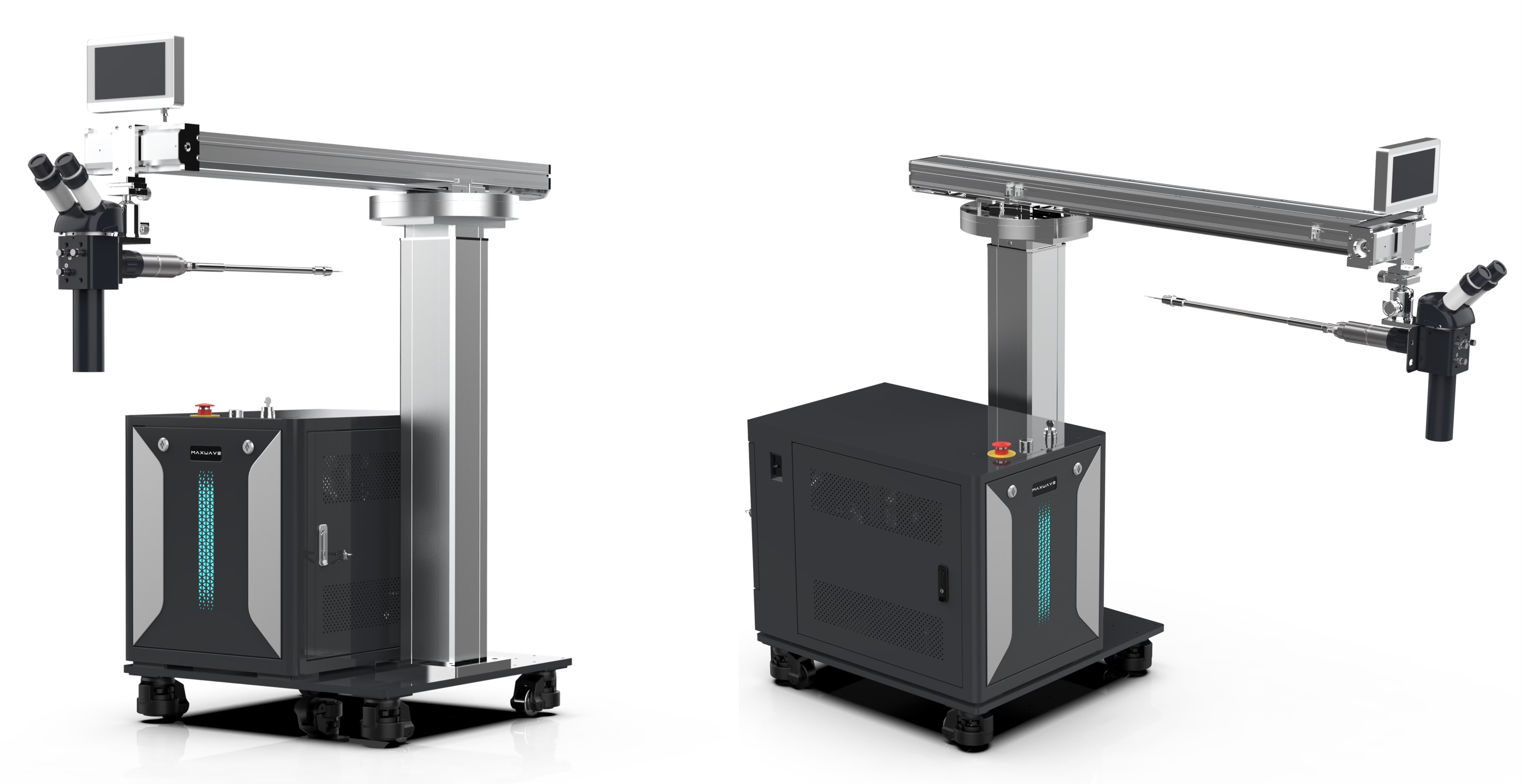
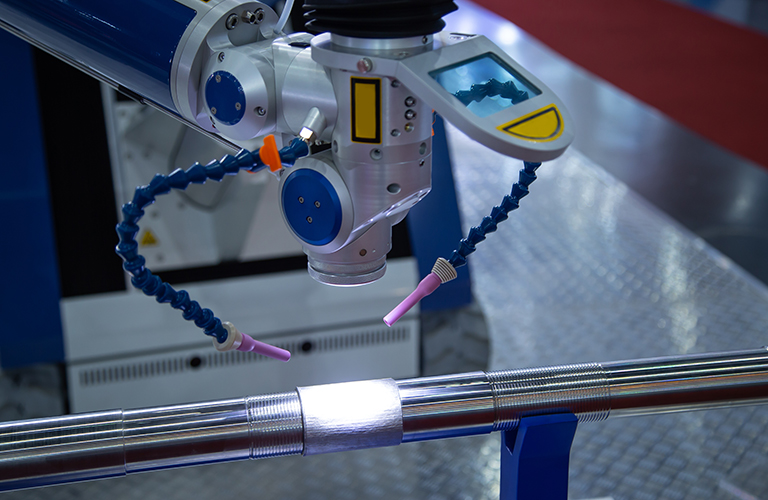
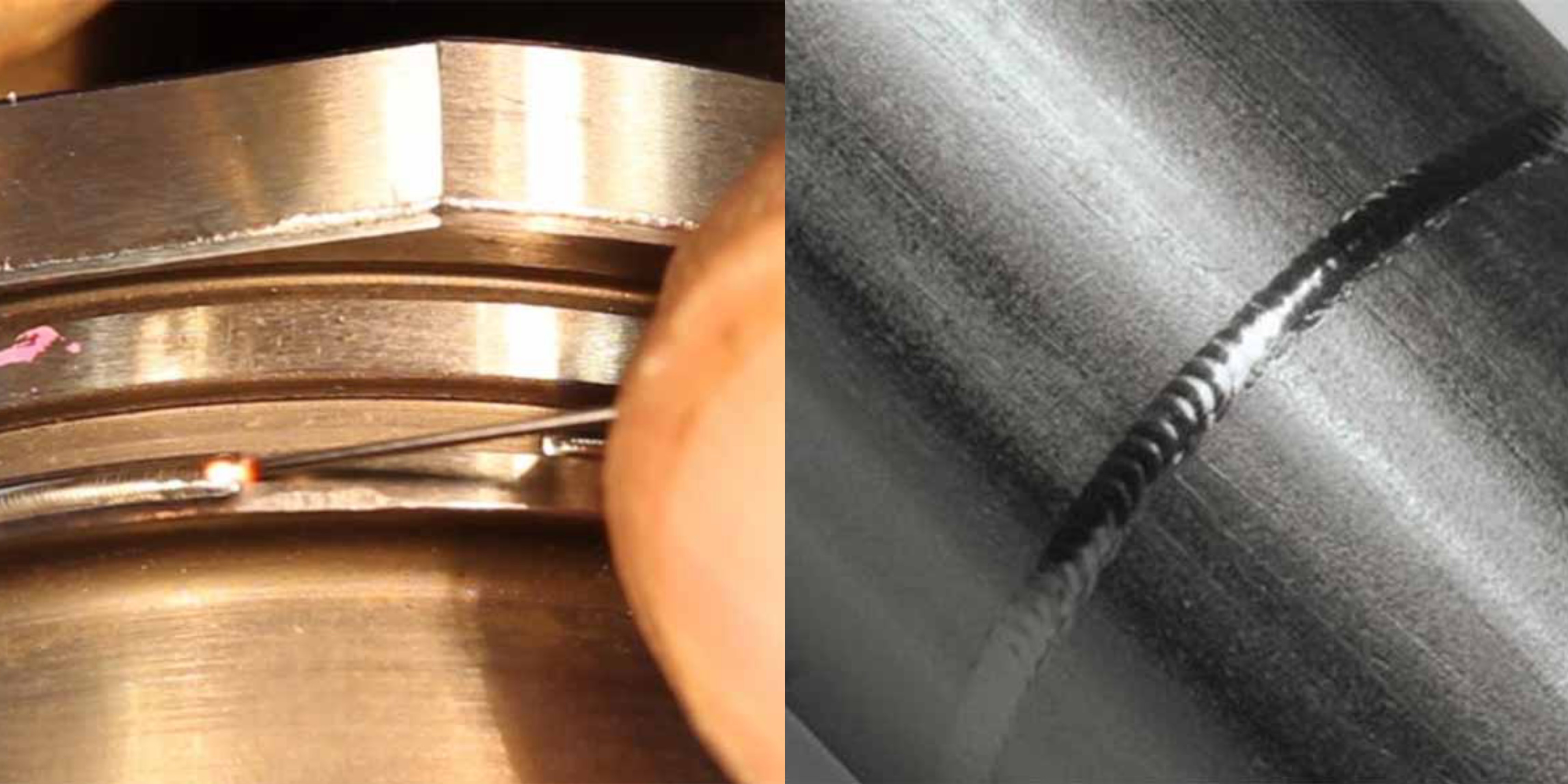
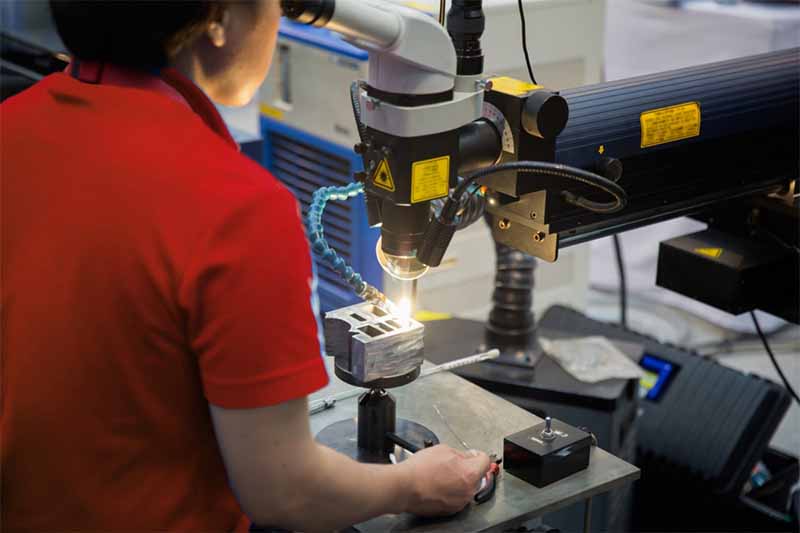
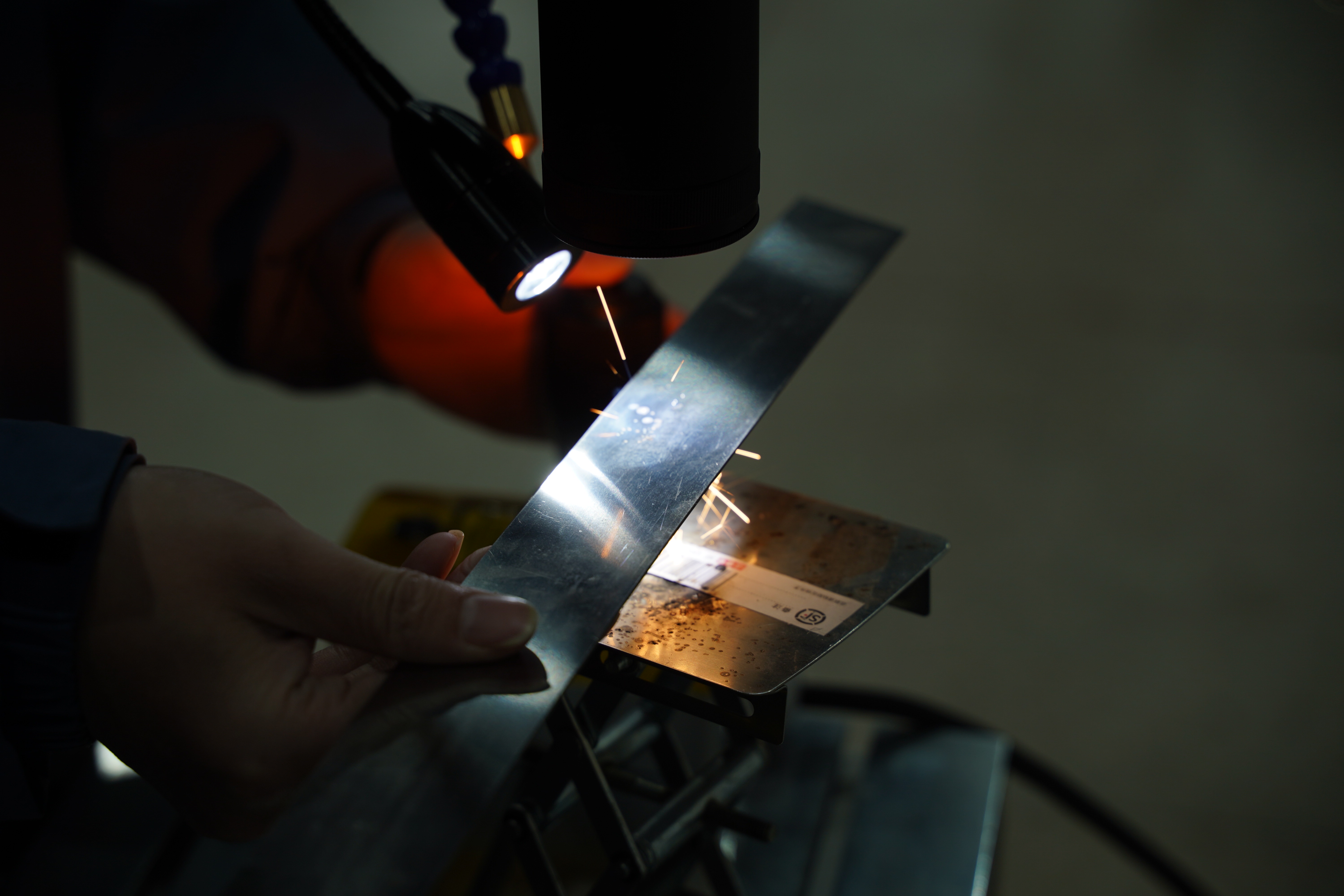
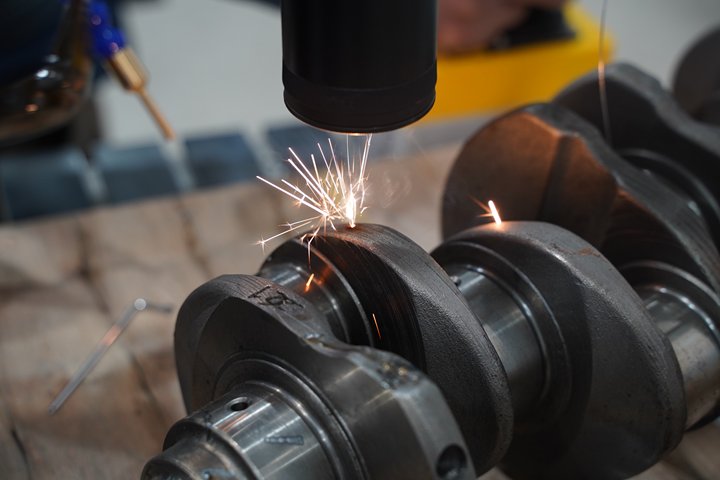
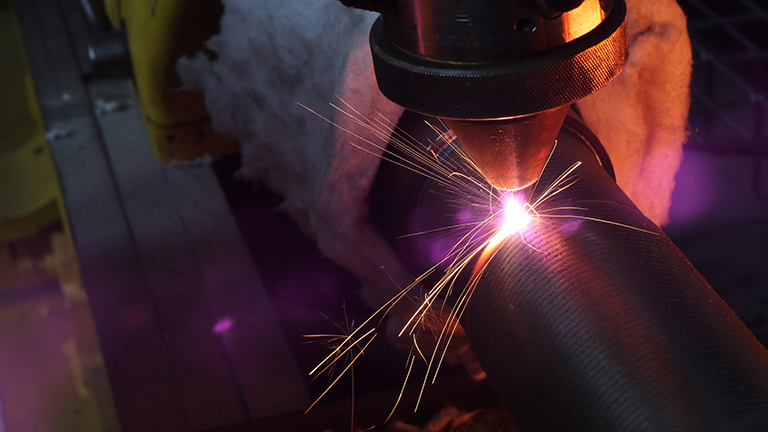
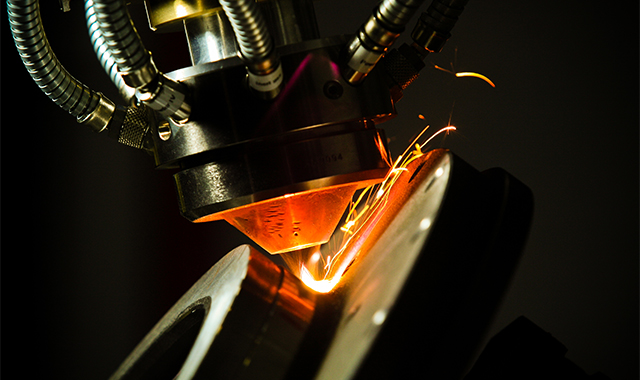
Recent Comments